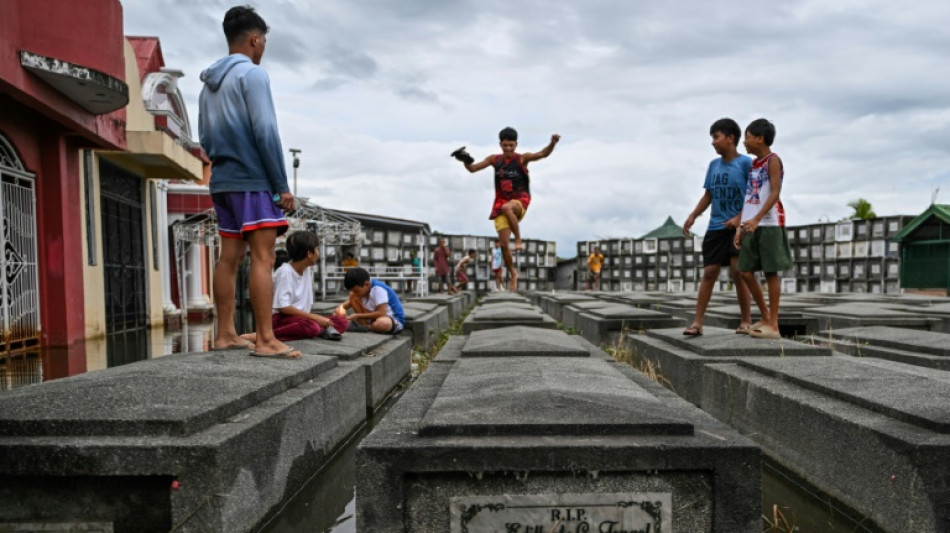
CMSC
-0.0450

Devout Filipinos clutching candles and flowers poured into cemeteries across the heavily Catholic Philippines on Friday to pay tribute to loved ones on All Saints' Day.
Hundreds of thousands flocked to sprawling graveyards in the capital Manila while others waded through floodwaters left by a deadly tropical storm to quietly pray and celebrate the lives of departed relatives.
At Manila North Cemetery, 64-year-old Virginia Flores lit candles in front of her grandmother's "apartment", the local term for tombs packed tightly together and stacked metres high.
"This is my way of remembering her life and our shared memories when she was alive, so I visit her every year," Flores told AFP.
Erlinda Sese, 52, was joined by her sister and grandchildren to offer prayers for their deceased loved ones.
"Even if they are gone, today is a reminder that our love for them will never fade," Sese said as she gently laid a bouquet of white flowers on a tombstone.
Police Brigadier General Arnold Ibay, tasked with handling crowd control in the capital, said he expected almost a million visitors at Manila North Cemetery alone, where people had begun lining up before dawn to enter.
In Pampanga, a low-lying province 80 kilometres (50 miles) north of the capital, AFP reporters on Thursday saw people trudge through murky floodwaters to visit the submerged Masantol municipal cemetery.
The visitors were making the pilgrimage barely a week after Tropical Storm Trami unleashed landslides and flooding that killed at least 150 people and left more than a dozen missing.
"Visiting dead loved ones is very important to Filipinos. This has been our tradition and culture," 34-year-old Mark Yamat told AFP.
"Even though the cemetery is submerged here, we will continue to visit."
In the devout Southeast Asian country, the day is a public holiday to allow for travel to far-flung gravesites across the archipelago.
Maria Cayanan, 52, was supposed to light candles in front of her parents' tombstone in Pampanga, but the floodwaters prevented her from reaching their burial plots.
"We will just light the candles at home," Cayanan told AFP.
"We have to visit their graves, so they know they are not forgotten."
G.Rehman--DT